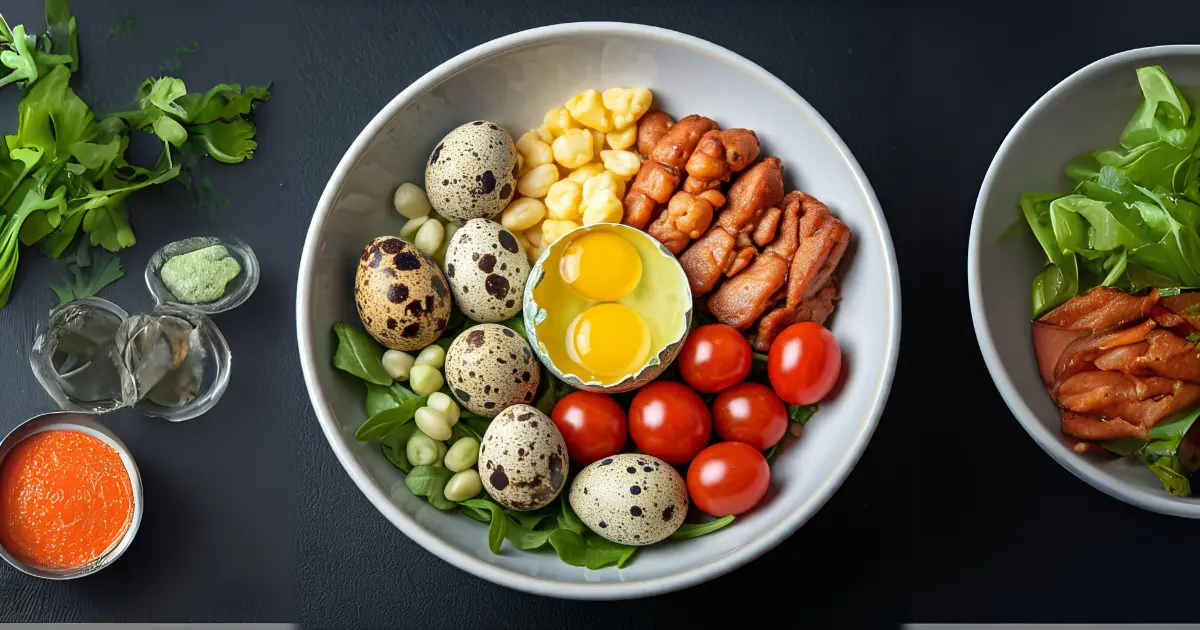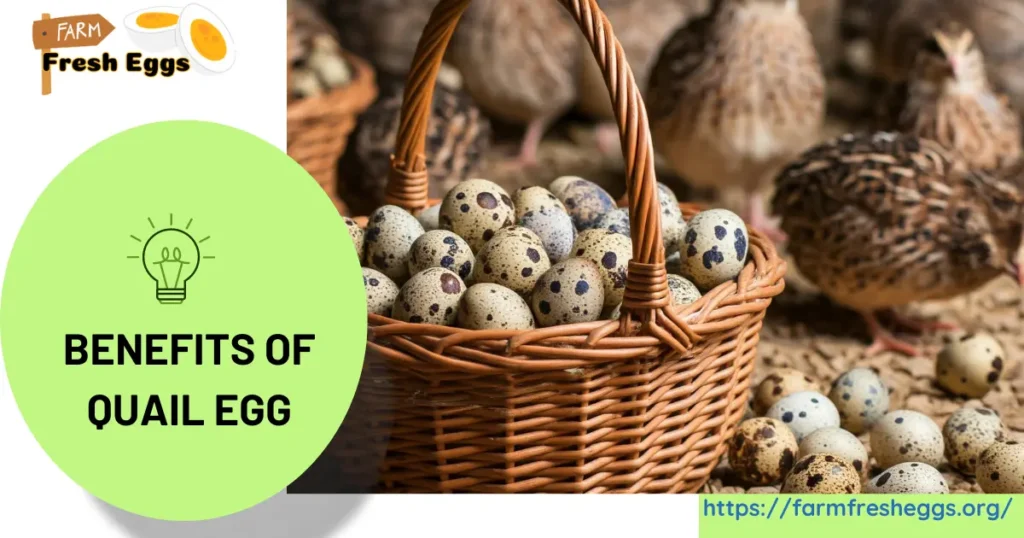Benefits of Quail Egg are immense, making them a valuable addition to your diet. These small but nutrient-packed eggs contain high levels of vitamins, minerals, and antioxidants. They’re also rich in protein, which supports muscle growth and repair. Below, we’ll dive into why quail eggs are so beneficial and explore how they compare to chicken eggs.
Nutrient-Rich Profile
Quail eggs contain more vitamins and minerals per gram compared to chicken eggs. They’re especially high in vitamin B12, riboflavin, and iron, which support energy production and immunity. Plus, their small size makes them a perfect snack option.
High Protein Content

With around 1.2 grams of protein per egg, quail eggs offer a good protein boost in a small package. Protein is essential for building muscles, supporting immune health, and maintaining satiety.
Lower Allergen Risk
Quail eggs are generally less likely to trigger allergic reactions than chicken eggs. This makes them a great alternative for those with egg sensitivities.
Antioxidant Benefits
Quail eggs are rich in antioxidants, which help fight oxidative stress. They contain vitamins A and C, known to support eye health and immune function.
How Do Quail Eggs Compared to Chicken Eggs?

Below is a table comparing the nutritional content of quail and chicken eggs:
| Nutrient | Quail Egg (5 eggs) | Chicken Egg (1 large egg) |
| Calories | 70 | 72 |
| Protein | 6 grams | 6 grams |
| Vitamin B12 | 60% DV | 10% DV |
| Iron | 9% DV | 5% DV |
| Riboflavin | 16% DV | 15% DV |
| Antioxidants | High | Moderate |
*Note: DV = Daily Value
To learn more about the benefits of farm fresh egg check the article linked below:
Incorporating Quail Eggs into Your Diet

From salads to breakfast bowls, quail eggs can be cooked and eaten just like chicken eggs. They’re especially delicious when hard-boiled or fried. Due to their small size, you may need to use several to match the quantity of one chicken egg.
External Resources:
https://fdc.nal.usda.gov/fdc-app.html#/food-details/172191/nutrients



